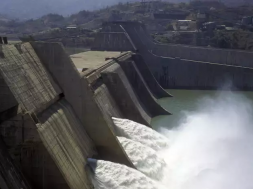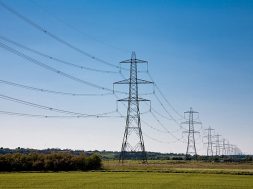
Electric vehicle charging network a high national priority
The establishment of a nationwide electric vehicle (EV) fast-charging network within the next five years has been identified as a national high priority initiative by Australia’s infrastructure auditing and advisory body.
Infrastructure Australia’s acting chief executive Anna Chau, who spoke at a CEDA lunch in Sydney on Tuesday, told the audience some analysts estimate that by 2025, 36 per cent of the Australian fleet will be electric.
Infrastructure Australia’s own analysis suggests that by 2040 EVs will account for 70 per cent of new vehicle sales and 30 per cent of Australia’s vehicle fleet.
There are currently 2,300 EVs on Australian roads.
However, at present there are less than 800 charging stations across the nation, of which less than three quarters are fast charging, compared to more 6,000 petrol stations.
Lack of access to charging stations has been identified by around two-thirds of motorists as a key barrier to adopting EVs, Infrastructure Australia says.
Saying goodbye to internal combustion
“Infrastructure Australia sees the mainstream uptake of EVs as an inevitable shift,” Ms Chau said.
“As countries transition to electric vehicles and hybrids Australia will have little choice but to follow suit. However in order to maximise the benefits from EVs we need to be proactive from a policy and infrastructure perspective.”
As well as establishing a national fast-charge network, there also needs to be investment in energy network infrastructure to ensure adequate generation and distribution to supply additional EV chargers, and policies and regulations to ensure uniform standards and interoperability.
Ms Chau said large manufactures including Mercedes Benz and Volvo are shifting investment away from internal combustion engine vehicles and plan to end production of these models within four years.
Volkswagon and BMW have committed $75 billion to develop EVs, and Toyota will roll out ten new EVs in the early 2020s including an electric HiLux.
The move to EVs on a commercial level is also being replicated in public policy, with governments around the world legislating to reduce their reliance on internal combustion, she said.
Infrastructure priorities
The 2019 edition of the Infrastructure Priority List released last month presents 121 nationally important proposals and a $58 billion funding pipeline designed to guide priority and high priority investment projects over the next 15 years.
The report says the arrival on the scene of the electric car represents a pivotal point in mass transport.
“The advent of electric vehicles, along with automation, growth in the ‘sharing economy’ and technological connectivity, could bring the largest transformation the transport sector has seen since the shift from steam to diesel locomotives.
“It will also forge links between the energy and transport network that did not previously exist … This is one of the reasons this year’s list also highlights the need for investment in the connectivity and reliability of our National Electricity Market in the medium to long term.”
The appearance of a fast charging network for electric vehicles in the priority list for the first time recognises the environmental and productivity benefits of EV takeup, Ms Chau said, “but only if supported by strategic infrastructure investment.”
National EV transport strategy
It comes as a Senate Committee released a report earlier this year making 17 recommendations to increase EV uptake in Australia.
The Select Committee on Electric Vehicles said electronic vehicles are transforming transport around the world and widespread use of EVs in the Australian transportation fleet would deliver significant economic, environmental and health benefits to Australian consumers and society.
However, the report says “Australia lags behind that of other comparable countries due to a relative absence of overarching policy direction from Australian Governments”.
It says Australian Governments should prioritise the development of a national EV strategy and establish an inter-governmental taskforce to lead implementation. National EV sales targets should also be set for the federal government to work with the states and local government to coordinate procurement, the report says.















